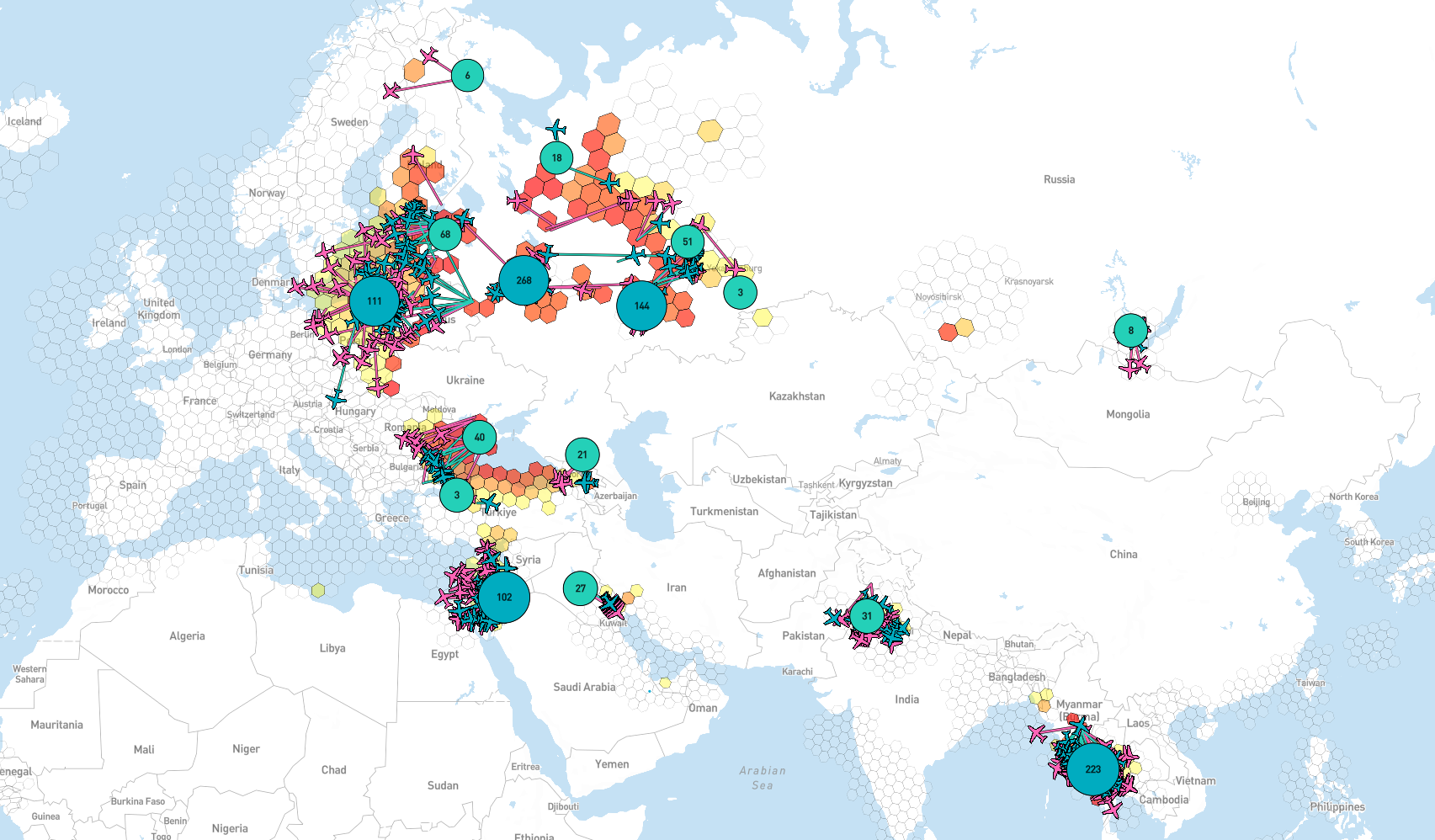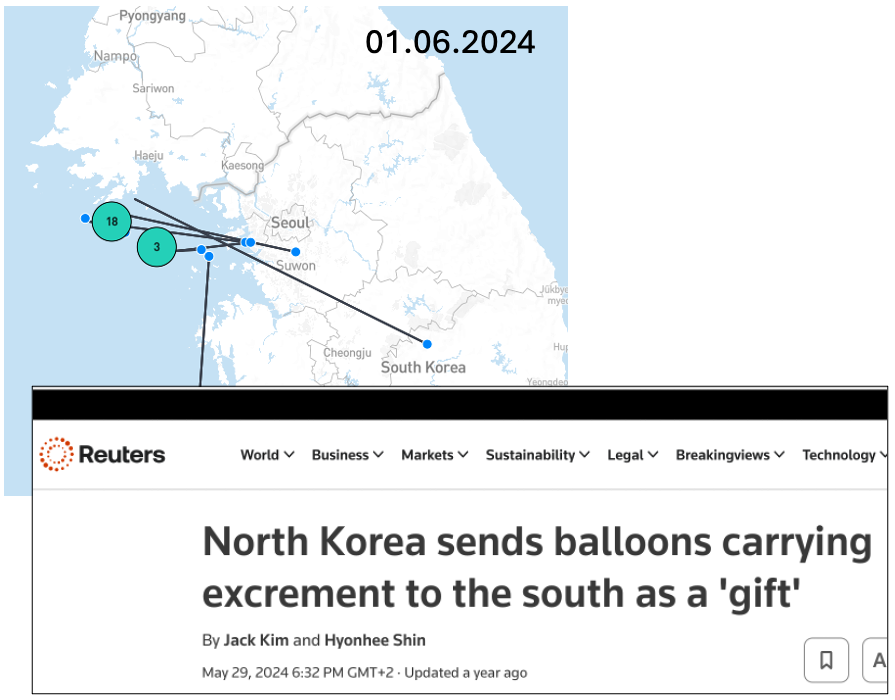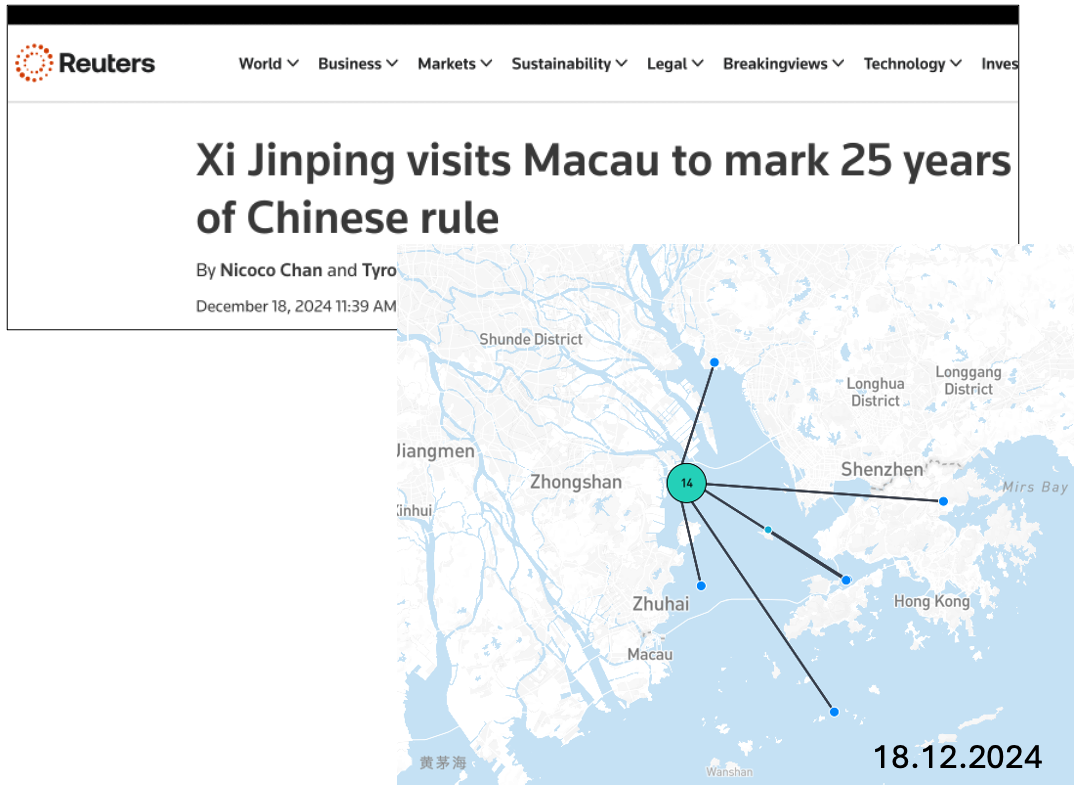GPS Spoofing in Regional and Local Conflicts
We realized that we are guilty of making the same mistake many researchers/scientists/engineers do: We’re not the best at communicating our findings.
This blog post is an attempt to do better, and I decided to present some of the results of the research we published earlier this year. It’s from a paper/presentation at CyCon 2025, titled Navigating Turbulence: Understanding New GNSS Risks in Conflict Zones. This paper was written with our colleagues from the Centre for Aviation of the Zurich University of Applied Sciences and the Cyber Defense Campus.
GPS Spoofing in Regional Conflicts
If you have been following GPS interference, it will not be news to you that GPS spoofing and jamming have become a frequent occurrence in regional conflicts.
GPS spoofing and jamming on September 29, 2025.
Examples of such regional conflicts are multiple locations in the Middle-East, Ukraine and Russia (including the exclave of Kaliningrad), the Indian-Pakistani border region, and Myanmar. Most of these regions see daily interference that affects large geographical areas. While this can be very disruptive for civilian GPS users, such as those in aviation, they are well-known and less surprising.
GPS Spoofing in Local Conflicts
However, besides the well-known hot spots, local interference can catch GPS users off guard. Two examples from 2024 and two from earlier in 2025 illustrate that.
On May 28–29 and June 1–2 2024, North Korea launched hundreds of balloons filled with trash and feces toward South Korea. At the same time, GPS interference at the border was detected at scale. It started on May 28 with GPS jamming, followed by spoofing from May 30 to June 2. Even aircraft on the ground at Incheon International Airport were affected during that period.
On December 18, 2024, China’s President Xi Jinping arrived in Macau to mark 25 years of Chinese rule over the former Portuguese enclave. This visit coincided with spoofing activities in the area on that day. This is unusual and not something frequently observed in that area.
Large-scale spoofing is a relatively new phenomenon in the Persian Gulf. One of the first spikes was observed around the time the USA conducted air strikes against the Houthis in Yemen. Then the situation appeared to be quiet for a while, just to flare up again when the conflict between Israel and Iran escalated in June 2025.
A much smaller, but somewhat more unexpected instance of GPS spoofing was during large protests in Serbia. While GPS interference around Ukraine and Russia is a daily occurrence, this event was of a short duration and appeared in a region that is usually fairly quiet.
What do I do with that knowledge?
Well, that depends on you:
If you’re a nerd (like we would probably see ourselves), you might just be curious to know.
If you are doing open-source intelligence (OSINT), this might help you put another piece of your puzzle together.
If you’re relying on GPS for your safety-critical operation (such as shipping or aviation), you have a vital interest in the latest update to the situation so you can take the necessary precautions.






